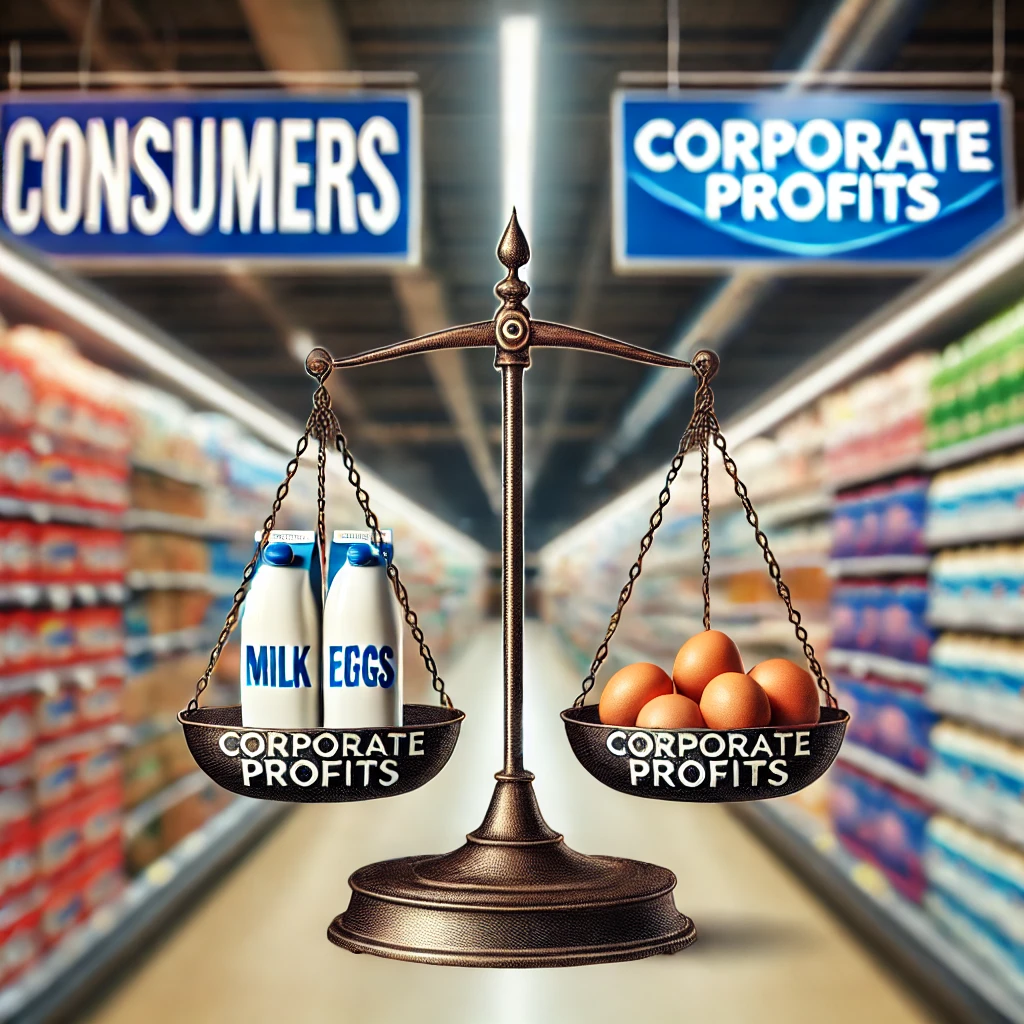Washington, D.C. — A recent court hearing has brought to light significant evidence of price gouging by major supermarket chains, adding fuel to the ongoing debate about the role of corporate greed in driving inflation. The hearing, centered on a potential merger between two of the nation’s largest grocery chains, has exposed how these corporations have been inflating prices on essential goods like milk and eggs, far beyond the increase in production costs.
The Biden-Harris administration has taken a strong stance against this merger, arguing that it would reduce competition and lead to even higher prices for consumers. During the hearing, a senior director from one of the supermarket chains admitted that they had indeed raised prices more than necessary on key products. This practice, commonly known as price gouging, has been a point of contention, particularly as inflation continues to strain household budgets across the country.
Supporters of the administration’s efforts argue that this case is a clear example of how unchecked corporate power can harm consumers. They contend that by blocking the merger, the administration is protecting the public from further price increases and promoting fair competition in the market. Critics, however, have dismissed these actions as mere political rhetoric, accusing the administration of using corporate greed as a scapegoat for broader economic issues.
This hearing is part of a broader strategy by the Biden-Harris administration to combat inflation by targeting corporate practices that contribute to rising prices. The administration has also been active in pursuing cases against other industries, including oil companies and real estate firms, where similar price-fixing behaviors have been alleged.
The implications of this case extend beyond the grocery aisle. It raises questions about the balance of power between large corporations and consumers, and the role of government in regulating prices to ensure fairness in the market. As the hearing continues, the outcome could set a precedent for how similar cases are handled in the future, potentially leading to more aggressive actions against corporate price gouging in other sectors.
In the meantime, American consumers remain caught in the middle, facing the dual pressures of inflation and corporate practices that may be exacerbating it. The administration’s efforts to curb these practices are seen as a critical step in addressing the root causes of inflation, though the debate over the best approach is far from settled.
As the nation watches this case unfold, it serves as a stark reminder of the complexities involved in managing inflation in a modern economy, and the ongoing struggle to protect consumers from the adverse effects of corporate power.

